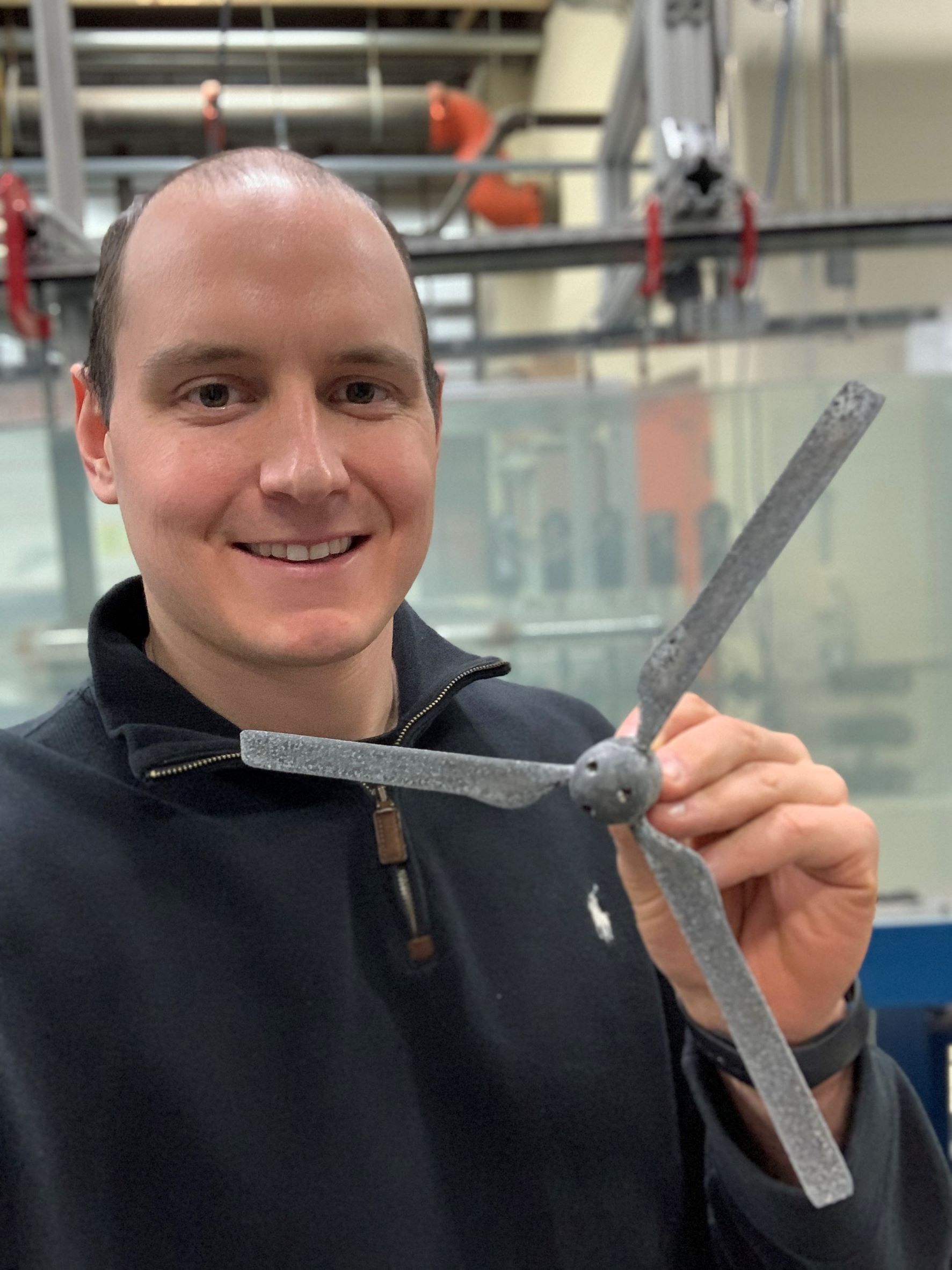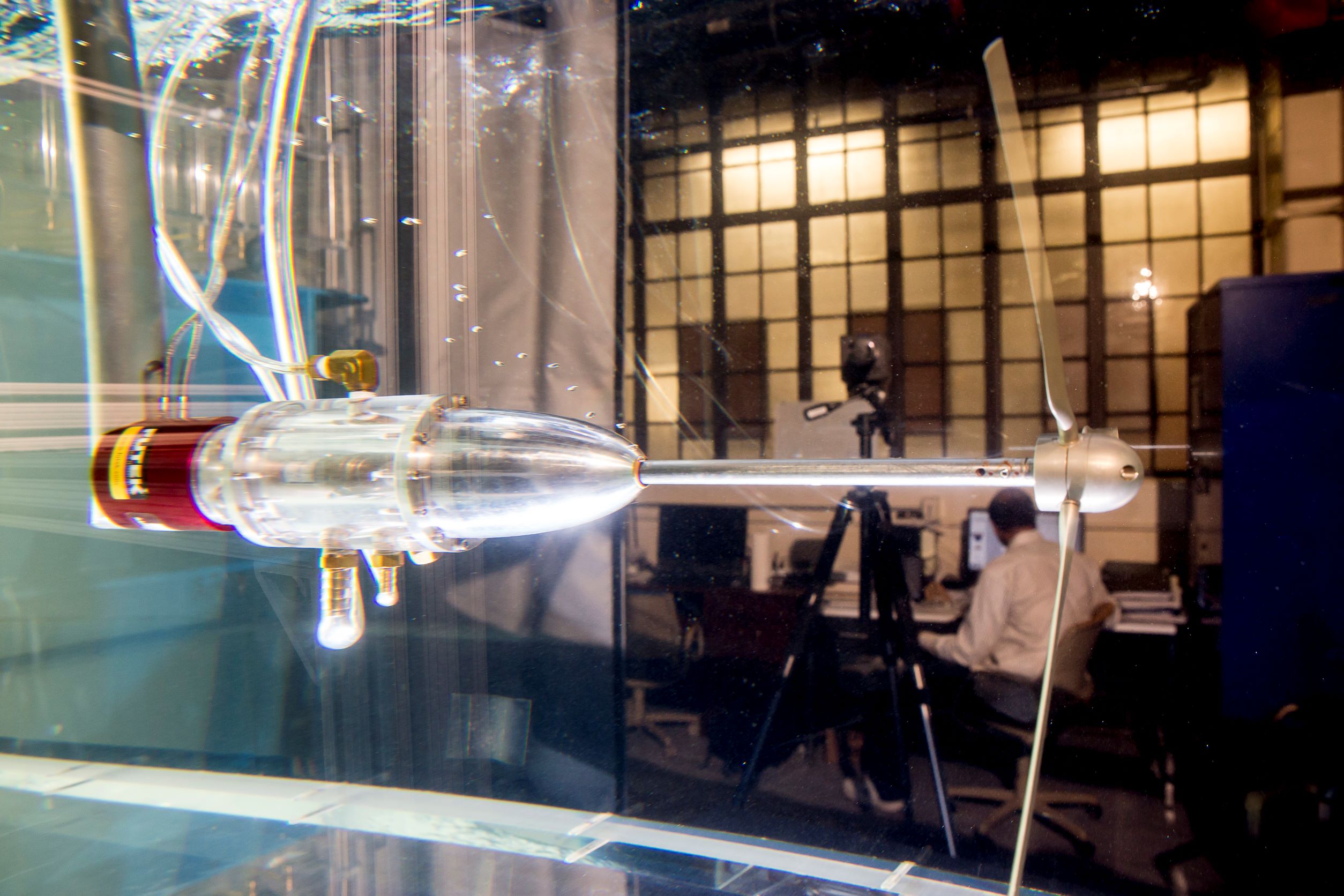Third-year mechanical engineering PhD student Chris Ruhl '16 '17G was recently selected by the Office of Energy Efficiency and Renewable Energy’s Water Power Technologies Office (WPTO) as one of three graduate students nationwide to conduct research through the Marine and Hydrokinetic Graduate Student Research Program.
Since returning to his alma mater in 2019, Ruhl has been working in the field of tidal energy harvesting, a rapidly growing renewable energy technology that aims to harness the kinetic energy in our world’s tidal straights and channels. In this video, Ruhl explains how his research on tidal turbines may someday help tidal energy become a viable alternative energy source.
Ruhl is advised in his studies by Lehigh professor Arindam Banerjee, chair of the Department of Mechanical Engineering and Mechanics. Their research includes experiments designed to create turbulent flow conditions in a laboratory setting that mimic the flow of a real-world tidal energy harvesting site. Studying tidal energy equipment and flow phenomena in a laboratory setting offers a much lower-cost, lower-risk environment than full-scale field studies.
To re-create real-world flow conditions in the lab requires Ruhl to understand what those conditions are. Achieving this goal requires collaboration to collect and analyze data gathered from real-world tidal energy sites.
Later this year, Ruhl will engage in an interesting opportunity to partner with some of the key players in the tidal energy community. In a collaborative effort, the Department of Energy (DOE) and Oak Ridge Institute for Science and Education (ORISE) launched the Marine and Hydrokinetic Graduate Student Research Program to allow selected fellows to conduct research both at their academic institution and an external hosting facility carrying out research in marine-hydrokinetic energy. The hosting facility may be a government research facility, industry site, partnering university, or other WPTO approved facility. Fellows spend a minimum of six months working with their chosen host facility.
For his term as a Marine and Hydrokinetic Graduate Research Fellow, Ruhl will be working with Sandia National Laboratories to characterize turbulence at tidal energy sites around the world. This information will help project developers evaluate tidal energy resources and provide insight on environmental conditions to inform the design of hydrokinetic turbines.
On being selected for this opportunity Ruhl says: “I am very much looking forward to working with folks at Sandia. Throughout my studies, I’ve seen the power and importance of stepping outside the walls of my lab and collaborating with government and industry partners. This opportunity will help me grow as a student, a researcher, and a collaborator.”
The MechE doctoral candidate will begin his time with Sandia National Labs on September 1, 2022, under the mentorship of Sandia’s Dr. Vincent Neary.



